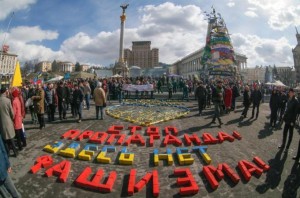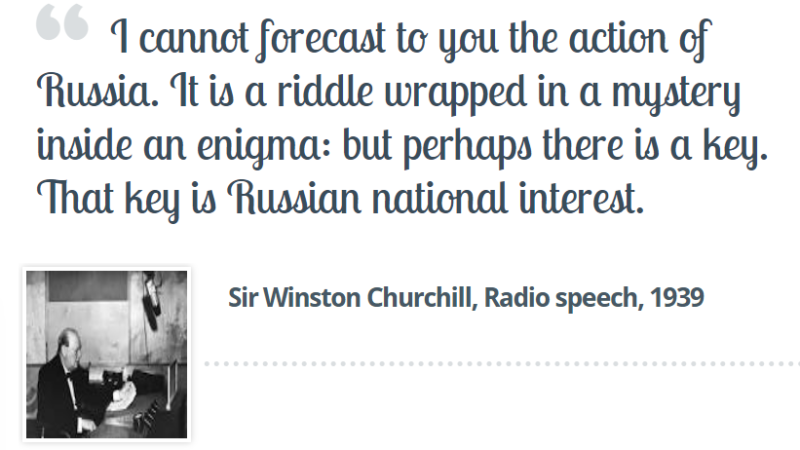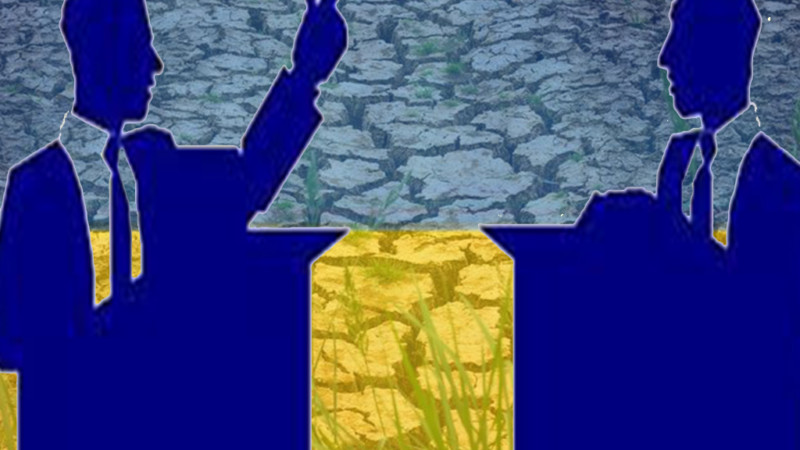‘Experts’ on Ukraine: All Hands on Deck!
‘Experts’ on Ukraine: All Hands on Deck!
(Re: Vladimir Golstein, “Why Everything You’ve Read About Ukraine Is Wrong” (5/19/2014)

To put it plainly, it has been a long time since I read so shoddy a text signed by a representative of an academic corporation as the article by an American Slavist at Brown University, Vladimir Golstein, published in Forbes on May 19 of this year.
Forget everything you’ve read so far about Ukraine. A little-known specialist in nineteenth-century Russian literature, hitherto unremarked in Ukrainian studies, will tell you what is actually going on in present-day Ukraine. I shall venture to comment on some of the theses put forward in the article, which has shocked many readers.
Thesis 1: The “moderate Ukrainians” who are killing soldiers in the Donets Basin, shooting down helicopters, taking over administrative institutions, factories and railways, terrorizing and eradicating political opponents are merely defending their right to read Pushkin, Tolstoy, and Dostoevsky in the original. Quite a discovery!
Thesis 2: Ukraine is a land of genetic anti-Semitism and anti-Jewish pogroms. The latest example of this is this month’s tragedy in Odesa, in which dozens of pro-Russian citizens perished. And now, don’t fall off your chair: according to the author, the actual organizer of this “organized pogrom” was the Jewish activist, businessman, and administrator of Dnipropetrovsk oblast, Ihor Kolomoisky. By that “logic,” the pogroms of Jews in Odesa, Kyiv, Chişinău, Warsaw, and Białystok in the second half of the nineteenth century were also organized by Jewish businessmen, and not by the rulers of the Russian Empire.
Thesis 3 (fundamental to the article): Russia is not guilty of anything. In fact, Russia is weak, since its population is smaller than that of China. It is modest and peace-loving, as its president, Vladimir Putin, has never protested against the expansion of NATO and has even given up Russian military bases on foreign soil. Democratic Russia extends a hand of friendship to the world, into which the hypocritical West places a stone.
If the reader thinks that the annexation of Crimea is an act of aggression and a violation of international rules and norms, he is mistaken. To begin with, Russia is entitled to do as it pleases in its “back yard,” which is governed not by international law but by the emotions of Russian leaders. Moreover, it was Western politicians and the Western mass media that forced President Putin to annex Crimea. They denigrated Russia and humiliated its leader so long that he had no other choice than to fulfill the long-term expectations of the peoples of Russia and Crimea.
Is the logic a bit hard to follow? Wait, there’s more. The author warns Western politicians against public humiliation of Russia, drawing parallels between Putin’s Russia and Hitler’s Germany, and hinting darkly that unlike the Germany of 1939, Russia possesses nuclear weapons. Faced with such arguments, the reader can only throw up his hands and ask rhetorically: does the author even bother to read what he writes?
There is no need to follow further the author’s “arguments” of a certain quality. Vladimir Golstein’s article contains nothing more than filthy negative images and stereotypes of Ukraine. It belongs to the genre of political propaganda and appears to be part of the Kremlin’s global information war in support of its policies. But even by the standards of that particular genre, the article looks crass and unprofessional, replete with factual errors.
Such screeds could be ignored if it were not for their geometric increase in quantity over the last few weeks. Professor Alexander Motyl has put it openly: “An astoundingly large amount of nonsense has been written about Ukraine ever since it came to occupy center stage in the public mind.”.To be sure, the mass media are always chasing after sensations and stop at nothing to attract readers’ interest. But those pretending to the status of intellectuals are under no obligation to put their professional reputation at risk.
The article is signed by an individual who holds academic status, but its language, style, arguments, and blatantly overbearing tone have nothing to do with the culture of academic expertise. Mr. Golstein’s article compromises not only the professional milieu in which he works but also the journal that makes its pages available for such publications.
Volodymyr Kravchenko,
Canadian Institute of Ukrainian Studies,
Edmonton, Alberta
This article originally appeared on the Contemporary Ukraine Research Forum. Reprinted with permission.


